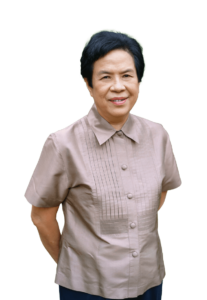
Soon, a new academic year will begin for AY2023/2024 Year 1 Nursing students. They are embarking on a course of professional study that will prepare and equip them for meaningful and exciting careers in healthcare. It will not be an easy road for any nursing student in Singapore, who will have to navigate demanding classroom learning as well as hospital attachments where, as they say, the rubber meets the road. Those who persevere will graduate with the confidence and skills to make meaningful and substantial contributions as members of healthcare teams.
We also bid a warm welcome to our three visiting PhD students from China, who joined us in January and will be with us till August. They will join our seminars and participate in research work and manuscript preparation, in order to gain a deeper understanding of Nursing research in Singapore, as well as the history and development of NUS Nursing. We also had the great pleasure of receiving Prof Lisa McKenna, Dean of the School of Nursing and Midwifery at La Trobe University, in November last year. She joined a roundtable discussion with our PhD students on career development for nurse researchers and academic staff and also led the NUS Nursing research seminar, sharing strategies to promote publication success.
Every nursing student in Singapore strive in making a difference in the lives of patients, understanding that it begins with active observation and identifying unmet needs. With one in four Singaporeans older than 65 by 2030, how well we age is of tremendous importance. Research Fellow Dr Seah Betsy noted an opportunity to reach out and encourage seniors to maintain good health through an initiative dubbed SHAPE (Salutogenic Healthy Ageing Programme Embracement). It is developed based on the salutogenic concept, which focuses on creating and maintaining good health rather than studying sickness, as in the pathogenic approach. Dr Seah first embarked on the SHAPE intervention in 2016 as a PhD project. Comprising 12 weekly structured group sessions, two home visits and a resource book, the programme takes a holistic yet tailored approach to helping seniors embrace physical, psychological, social and spiritual health.
Another meaningful initiative in the geriatrics field is a qualitative study by PhD Nursing student Apphia Tan, whose project, titled “Interprofessional collaboration in geriatric teleconsultations: An exploratory qualitative study”, received the Bronze award at the Singapore Biomedical Health Congress 2022 for geriatric research. An analysis of nurses’ data from the project was also published in the journal, Age and Ageing, which has an impact factor of >10. Apphia wanted to investigate nurses and physicians’ experiences in providing telegeriatric services in nursing homes, and how interprofessional collaboration takes place in this particular care model. She is currently working on the next phase, which is developing guidelines for nurses involved in telegeriatrics.
Whether they are teaching, attending to sick people or working on ways to improve the way we care for patients, nurses go about their work professionally, without fanfare. So it was with much pleasure that we read Health Minister Ong Ye Kung’s recent Facebook post thanking his medical team at NUH for their care. It is always nice to receive the occasional kudos, but nurses know that what motivates us is providing the same standard of care to every patient, and then seeing them get better and back on their feet again. That is the real reward.

Prof Emily Ang
Head (NUS Alice Lee Centre for Nursing Studies)


